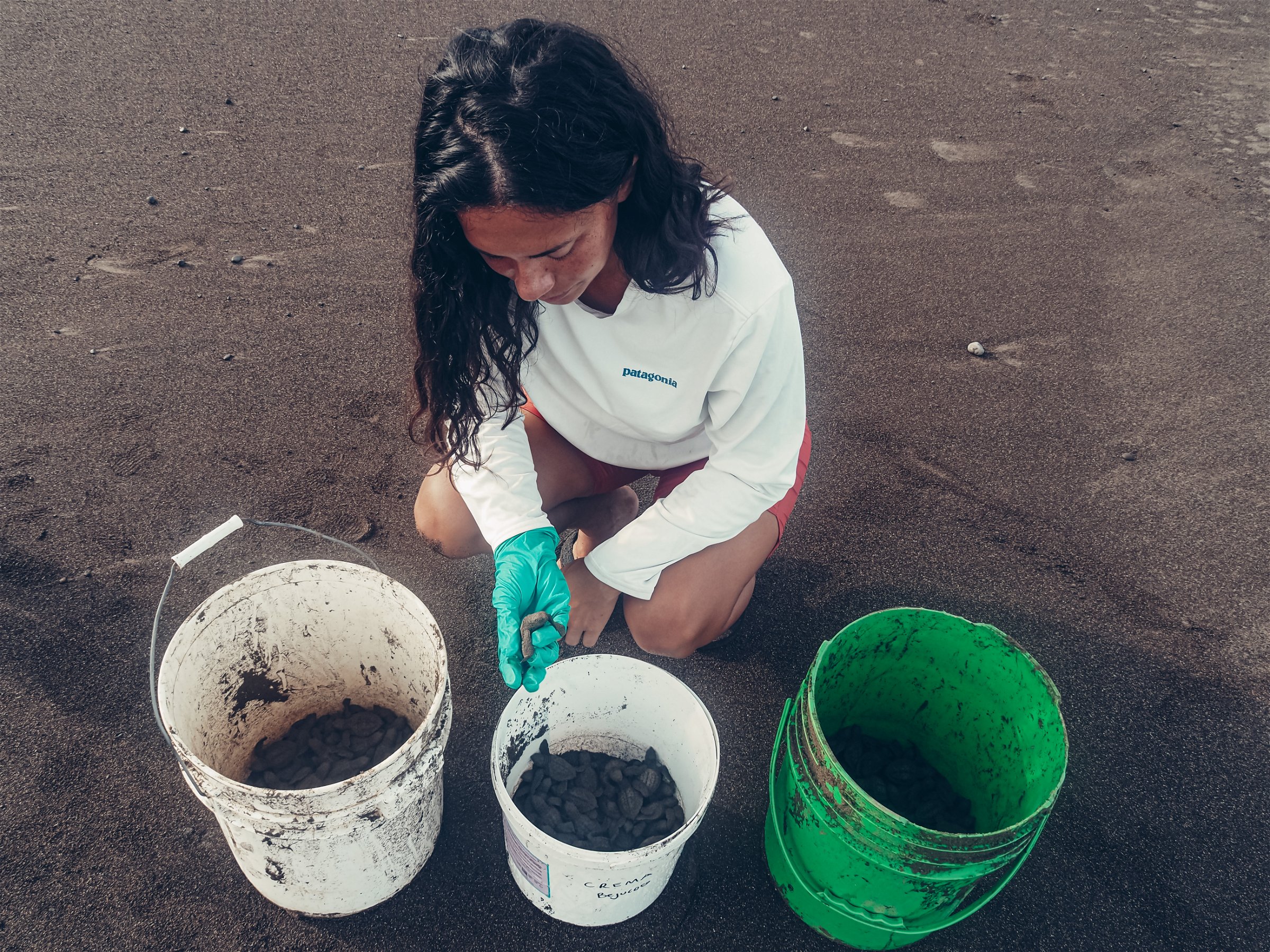THE VALUE OF YOUR MILITARY EXPERIENCE
October 5, 2021
ANALYSIS ON THE RELEVANCE OF A MILITARY BACKGROUND IN CONSERVATION AND DEVELOPMENT
What I’ve personally observed as I’ve begun to slowly dip into the completely foreign realm of international development and wildlife conservation, is that everything I’ve done up to this point has been massively impactful on what I’m about to do and my ability to do it. Definitely not making the claim that any of the skills below are exclusive to veterans—more so that it seems a majority of veterans probably have had some type of exposure to these situations.
This article will hopefully provide you with some reassurance that there are unique, valuable, transferable qualities that you can acquire in the military that are applicable and relevant to international development and conservation.

Sea turtle hatchery data collection in Bejuco, Costa Rica.
I was recently introduced to Matt Enderlein, a former soldier who’s doing some really unique things post-military, including international travel/living, learning to free dive—and now—working on a wildlife park in Africa. We decided to work together to try to give some perspective on what aspects of your military experience may be advantageous if you’re transitioning to the conservation or development fields.
Neither of us are experts, and both of us have very limited experience at this point. However, both of us have managed to enter this world–so there’s that. I’m sure as we both spend more time exploring these fields, we’ll have some more refined feedback.
This information is a bit niche, as we are on niche paths, so, many of you likely won’t be able to relate to the specifics listed here. But some of these ideas—when applied generally—are true for many other professions. Hopefully this will encourage you in your research for your own path! Thanks for reading.

Olive Ridley sea turtle during an arribada in Costa Rica.
1. You’ve held more responsibility than almost anyone else at your age/experience level. Sure, it’s easy to trivialize some of this “leadership” experience and “responsibility,” but it does make a difference. How many of your peers led a department of 40+ people right after graduation? Whether you gauge it in terms of personnel, risk, equipment, authority, or money (ok, in our case it’s just government fun bucks), you’ve at least had a healthy exposure to all of this compared to your peers. Not many civilian organizations force you to “work up” in terms of authority. That’s a big advantage for you.
2. You likely have some type of experience working internationally, cross-culturally, and with people who speak different languages. This obviously adds a significant amount of complexity, and creates room for miscommunications, misunderstandings, and errors. Having the ability to work in an environment like this with realistic expectations is important.

CREMA station house for research assistants and the coordinator.
3. You’re a jack of all trades…and that’s a good thing. Not many other career fields give you the same scope of experience the military does. You’re a generalist–and in this field–it seems that’s often an asset. You likely have experience in management, operations, logistics, planning, etc. You’ve led teams, managed projects, and worked on staffs. Many of your peers who chose different routes maybe have a lot of experience in *one or two* of those areas. Despite what you might think, your experience as a generalist is unique and you can leverage that. Some of these organizations don’t have the funding or personnel to support robust staffing for their projects, so you may be expected to assume additional responsibilities. Or, it just might allow you to bring more to the table, and there’s something to be said for that too! Having a diversity of work experience (even if it’s a mile wide and only an inch deep) will contribute to an understanding of how things work and solving problems beyond your specified job description.

4. You’re experienced working in “messy” situations. You’ve probably had some practice at making things happen in a chaotic environment. You’ve faced problems where a perfect outcome is simply not possible, and you’ve learned to adapt, prioritize, and get acceptable results in a less-than-ideal situation. This isn’t necessarily about being “calm under fire/pressure.” It’s more about having successfully navigated one of the most chaotic and suffocating work environments: government bureaucracy.
5. You’re accustomed to constantly working with new people, building a team, or personally integrating yourself into a team. Much of this work is very relationship and team-oriented and you’re dependent on other people to get things done. This phenomenon is exacerbated by language barriers, lack of accessibility to resources, and often low-tech environments. You can’t just quickly order some supplies you need on Amazon to help get your job done because you’re tired of waiting for the S-4 to source it or for the budget to be approved. In particular, if you’re geographically isolated, you are literally dependent on the team of people around you to help accomplish your tasks—probably much more so than they are dependent upon you. Cooperation, building trust, and relationships are more important than ever.

Preparing to release baby sea turtles.
6. You’re probably well accustomed to FRAGOs. Not only do you have experience navigating government bureaucracy, but you also have had plenty of repetitions of changed plans, cancelled plans, or nonexistent plans. And the planning (or lack thereof) may or may not have been communicated to all of the parties involved. In different cultures, the pace, sense of urgency, and expectations task completion vary wildly. Communication isn’t always easy due to language barriers, technology issues, or no cell service. And because of the infrastructure, roads may become impassable, the power may be out, the truck might have broken down, and any of these variables may be the lynchpin to your plan. Being comfortable in a constantly changing, uncertain environment is absolutely necessary.
7. The military provides you with the ability to earn a stable, steady income and education benefits that have the potential to financially prepare you to transition to a career field that can be difficult to enter, challenging to navigate (with respect to pay and benefits), and sometimes requires a master’s degree and internships (maybe unpaid or very small stipend) to be competitive for jobs. If you know you’re going to enter either of these fields, you can and should begin saving as much as possible now. The fields are highly competitive, and with respect to both conservation and international development—and these endeavors generally aren’t inherently producing profits—these aren’t “lucrative” careers in the conventional sense. Consequently, the median salary isn’t . A 2017 Guardian article describes the plight of young conservationists, “Serial unpaid internships, crippling student debt, short-term work for little or no pay, dismissive attitudes, and entry-level job requirements that include expectations of considerable field time and experience.” None of this is meant to deter or discourage you from exploring this career field as we are doing. But, you should do your best to be methodical and deliberate about your transition into these careers, because it may not be easy. Maintain realistic expectations, prepare as much as possible while you are able to, and be ready to work hard!

None of this is meant to deter you or discourage you from exploring this career field as we are doing.
But, you should do your best to be methodical and deliberate about your transition (as you always should), because it may not be easy. Maintain realistic expectations, prepare as much as possible while you are able to, and be ready to work hard! Similarly, none of this is to provide you with the illusion that you’ll be a shoo-in as a veteran–because that’s certainly not the case. However, there are unique experiences you’ve had which enable you to contribute in unique ways, which you shouldn’t lose sight of.
Hopefully this provided you with a bit of food for thought as you plan your transition out of the military. Thanks for reading!
